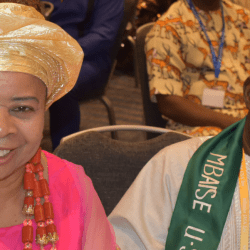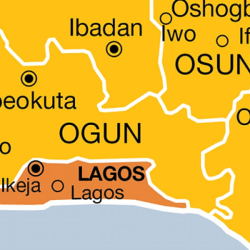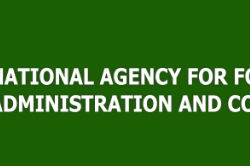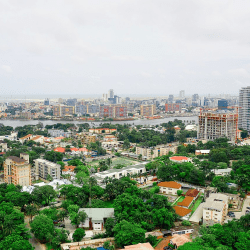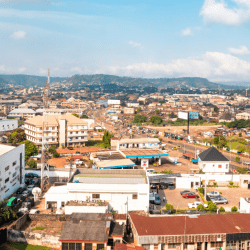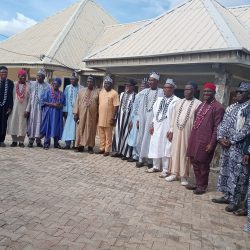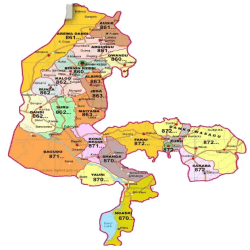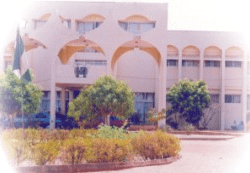
Kebbi State Executive arm of government is headed by the Executive Governor while the Legislative arm comprising 24 House of Assembly members represent the 21 Local Government Areas (LGAs) is led by the Speaker.
The Judicial arm is headed by the Chief Justice of the State Judiciary. All 21 LGAs function in accordance with the provisions of the 1999 Constitution as amended.

The governance and administration sector is considered the engine of government and includes Ministries of Justice, Finance, Budget and Economic Planning, Local Government and Chieftaincy Affairs, Office of the Secretary to the State Government, Office of the Head of Ser vice, State Independent Electoral Co m m i s s i o n , F i s c a l Re s p o n s i b i l it y Commission, Kebbi State Emergency Management Agency, Bureau of Public Procurements and Kebbi Internal Revenue Service.
Following key principles of accountability, transparency, inclusiveness, responsiveness, effectiveness as well as efficiency, Kebbi State Government has over the years sought to improve its administrative response capacity. However, faced with the realities of dwindling public sector productivity owing to inadequate training and development support, there is an urgent need for civil service revitalization.
Kebbi State currently has 22,176 employees. The State is still largely dependent on Statutory Allocation from the Federation Account which represents 58% of all its revenue. Internally Generated Revenue (IGR) account for 10% and Value Added Tax (VAT) takes 0.8% of total revenue of the State while Miscellaneous and internal loans follow with an average weight of 10% and 9%, respectively.
The State has instituted mechanisms for ensuring accountability and transparency in the management of public funds, namely: adoption of the International Public Sector Accounting Standard (IPSAS) for budget and financial reporting; Set up of the State Integrated Financial Management Information System (SIFMIS); adoption of the State Financial Transparency, Accountability and Sustainability (SFTAS) approaches; and the use of Treasury Single Account (TSA) for revenue collection.
Governance also benefits from financial and technical partners including the United Nations’ agencies, International NGOs, and the Private Sector that contribute to attainment of government development goals. The State House of Assembly has been dominated 100% by men over the years, which indicates the patriarchal nature of the State and a limitation of the Legislative arm to deliver inclusive social protection laws in favour of the women and youth.
Additionally, there are less frequent public or civil society engagements by the hallowed chamber and has been labeled as a no reform laws passed legislature. Additionally, the State consists of 21 LGAs each headed by an elected Chairman who serves for a period of 2 years statutorily in the first instance and a maximum of four years.
The LGAs, grassroots government, in principle is much closer to the people in delivering trans formative changes. H
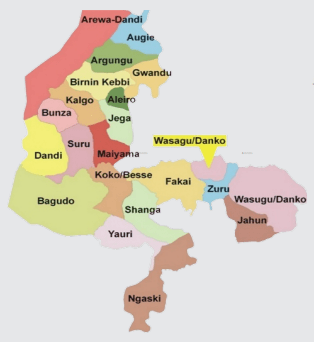
However, delay in progression caused by lack of financial autonomy and technical capacity to deliver administrative roles is recognized. Local Governments have found it difficult to optimize their internal revenue potential as they struggle to establish a balance between State revenue points and Local Government revenue points. However, the new turn of financial autonomy promoted by the Financial Intelligence Unit (FIU) may improve their financing ability.
Similarly, CSOs have not been effective in carrying out monitoring and follow-up of the activities of the three arms of government due to incapacity and lack of patriotism and commitment.
The State Judiciary like other States in Nigeria, suffers from managerial and financial constraints. Nevertheless, Kebbi State enjoys the rank of one of the most peaceful States in Nigeria and a proud contributor to Nigeria’s non-oil GDP. Generally, many challenges mitigate public administration performance, some of which include inadequate monitoring and evaluation mechanism for efficient service delivery, absence of accountability mechanisms in MDAs, continuous citizens’ apathy owing to mistrust, and low women representation in governance. The State suffers other constraints including: Kebbi State Industrial Policy, 2022 | 6 weak internal revenue base; poor budget preparation; poor citizens’ participation in budget process especially at local government level; unclear guidelines for public-private partnership agreement; absence of a strategic framework and polices for ease of doing business; compromised relationship between the arms of government; weak coordination and partnership within and among various institutions; and low staff morale linked to lack of training, welfare support and delay in payment of benefits. These largely retard performance and affect the effectiveness of State institutions. These weaknesses are reflected in the performance of the State b u d g e t . T h e g a p o f t h e b u d g e t implementation is still large and stands approximately at 55%
Reference
https://kebbistate.gov.ng/sites/default/files/KEBBI%20STATE%20INDUSTRIAL%20POLICY_0.pdf
